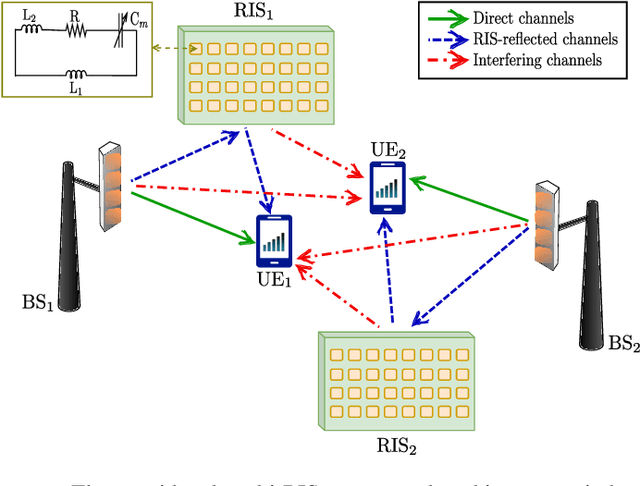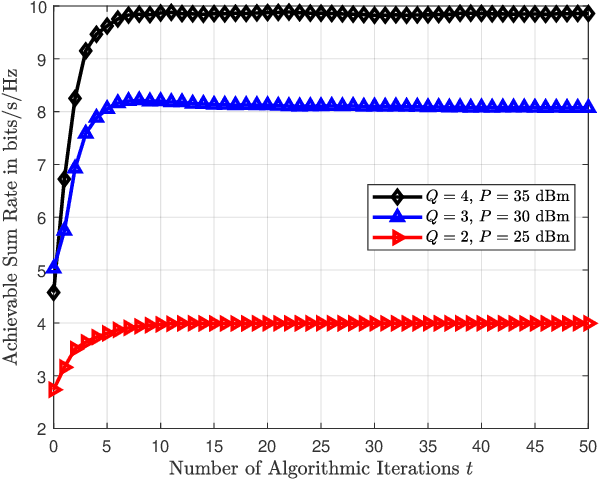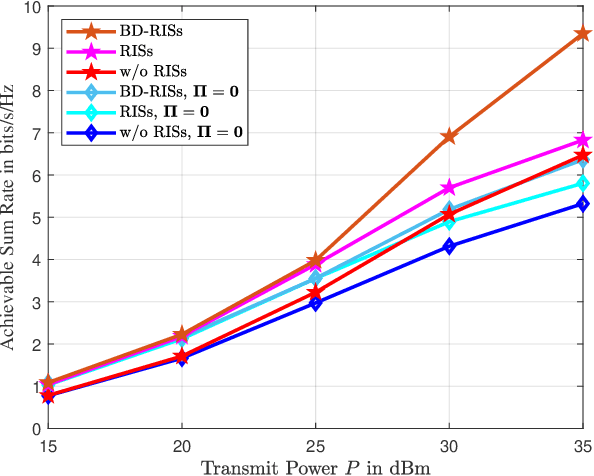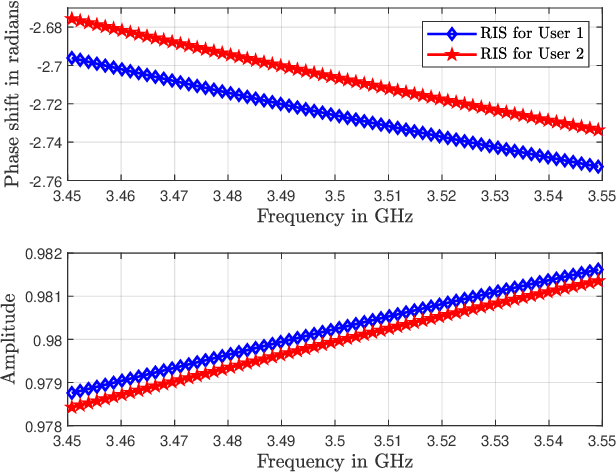Multi-RIS-Empowered Multiple Access: A Distributed Sum-Rate Maximization Approach
Paper and Code
Jun 27, 2024



The plethora of wirelessly connected devices, whose deployment density is expected to largely increase in the upcoming sixth Generation (6G) of wireless networks, will naturally necessitate substantial advances in multiple access schemes. Reconfigurable Intelligent Surfaces (RISs) constitute a candidate 6G technology capable to offer dynamic over-the-air signal propagation programmability, which can be optimized for efficient non-orthogonal access of a multitude of devices. In this paper, we study the downlink of a wideband communication system comprising multiple multi-antenna Base Stations (BSs), each wishing to serve an associated single-antenna user via the assistance of a Beyond Diagonal (BD) and frequency-selective RIS. Under the assumption that each BS performs Orthogonal Frequency Division Multiplexing (OFDM) transmissions and exclusively controls a distinct RIS, we focus on the sum-rate maximization problem and present a distributed joint design of the linear precoders at the BSs as well as the tunable capacitances and the switch selection matrices at the multiple BD RISs. The formulated non-convex design optimization problem is solved via successive concave approximation necessitating minimal cooperation among the BSs. Our extensive simulation results showcase the performance superiority of the proposed cooperative scheme over non-cooperation benchmarks, indicating the performance gains with BD RISs via the presented optimized frequency selective operation for various scenarios.
 Add to Chrome
Add to Chrome Add to Firefox
Add to Firefox Add to Edge
Add to Edge